There’s not a lot of feel-good writing in this roundup of books. These titles are enlightening and convicting, speaking truth to areas that church and the culture have gotten wrong. You might not agree with the ideas in these books, but you WILL learn a lot. Let’s get right to the reviews.
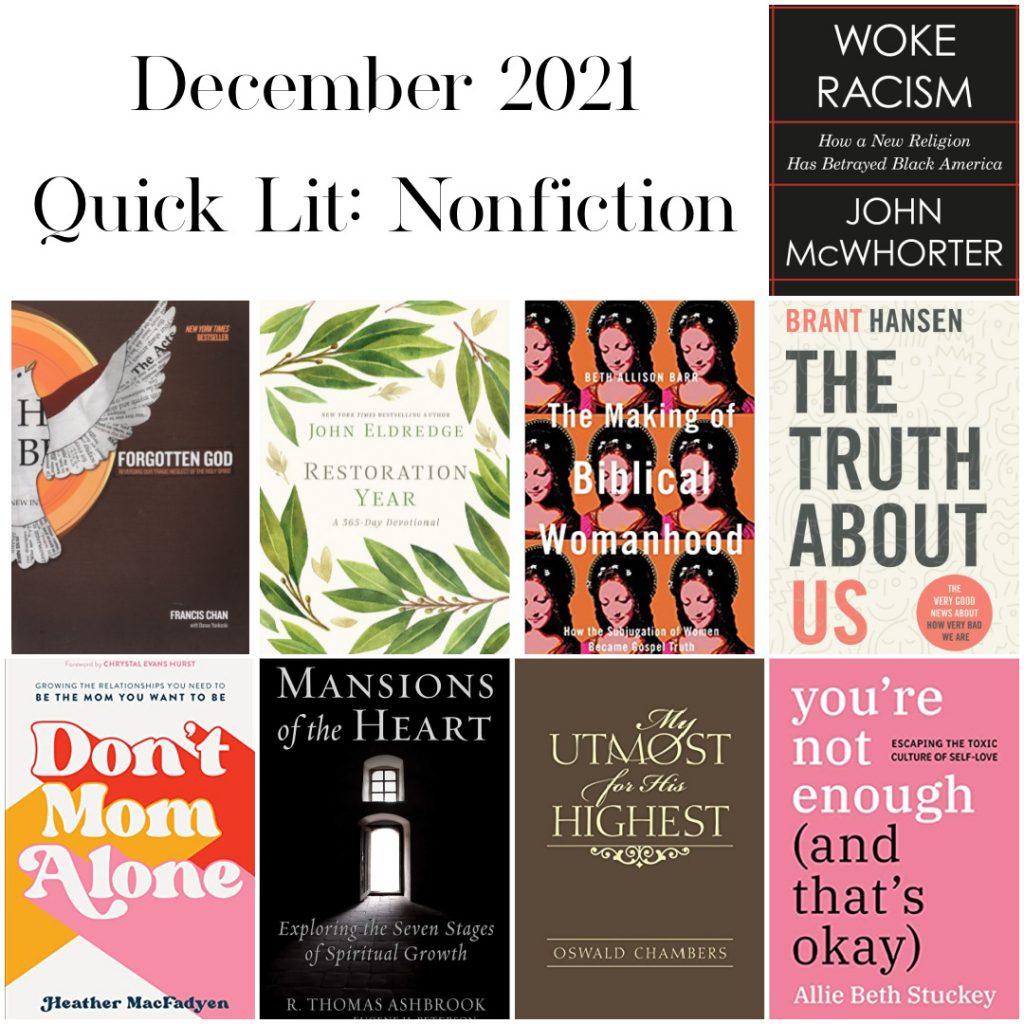
Mansions of the Heart: Exploring the Seven Stages of Spiritual Growth, by R. Thomas Ashbrook: Our church recently did a sermon series inspired by this book, so I of course needed to read the source material for myself! The book, based on the Seven Mansions described by Teresa of Avila (a sixteen century saint), offers a step-by-step guide to spiritual formation unlike any I’ve read before. Ashbrook (a Lutheran pastor and Spiritual Formation guide) begins by sharing his personal experience of longing for more from the Christian life, which led to his own spiritual transformation informed by the formation road map laid out by Teresa of Avila. Ashbrook debunks common misunderstandings regarding the end goal of spiritual formation (which is NOT holiness, good works, wholeness, or deeper understanding, but intimacy with God) and sheds light on the nature of our “first order calling” (a personal relationship of love with God) that is the foundation for our “second order calling” (following Jesus and all that entails).
Ashbrook recounts his own journey as well as those of two fictional believers whose experiences represent composites drawn from projections based on Teresa’s explanations. Through these three accounts he walks us through the seven mansions of spiritual formation: 1) New Beginnings, 2) Between a Rock and a Hard Place, 3) Following Jesus, 4) Discovering the Love of Jesus, 5) Longing for Oneness with God, 6) The Passion of God’s Love, and 7) A Life of Love in the Trinity. Within each mansion he outlines key activities and areas for growth that help readers understand where we are on our own spiritual journeys and what to expect as we move forward.
This is a dense read, but a fascinating and worthwhile one that gave me immense clarity regarding my own spiritual path. I loved the blending of spiritual traditions and the focus on the soul rather than apologetics or doctrine or potentially controversial issues that we Christian can hyper-focus on. Ashbrook brings clarity to a difficult concept, making spiritual formation feel relevant and enticing. This is not a self-help book, but a guide to understanding what God is doing in and through us as believers.
If you find yourself at a standstill in your faith, are frustrated with an apparent lack of spiritual maturity, or are unsure of either your destination or your specific route in your relationship with God, I HIGHLY recommend this book. It’s a powerful read for brand new believers, seasoned followers of Jesus, and everyone in between.
My Rating: 5 Stars // Book Format: Paperback
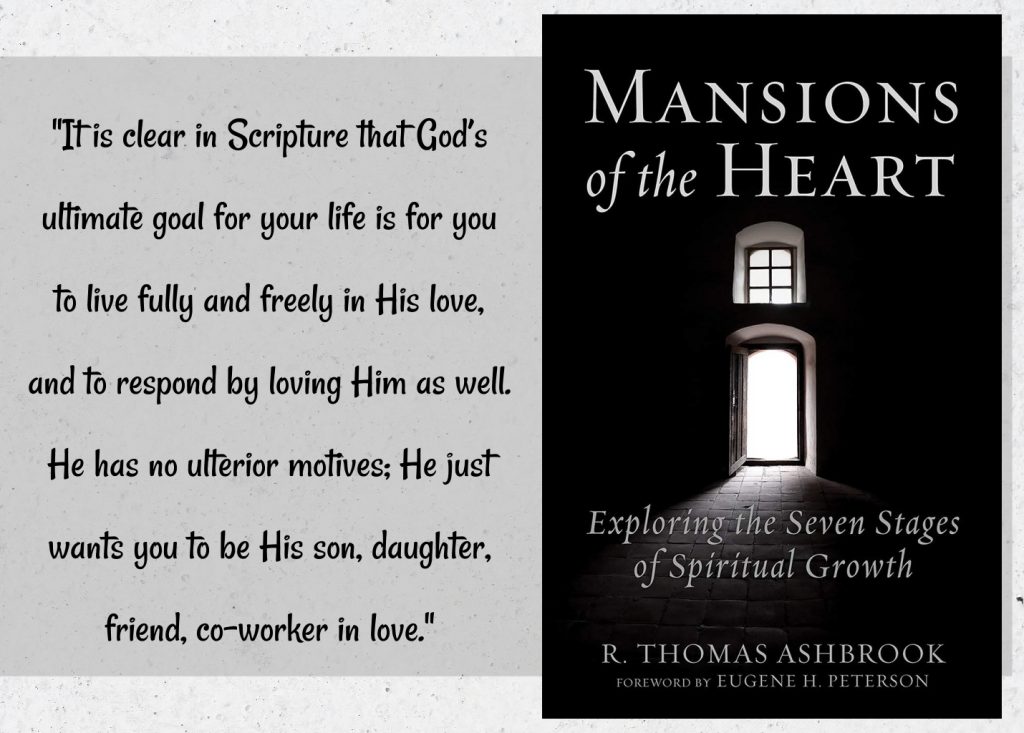
The Making of Biblical Womanhood How the Subjugation of Women Became Gospel Truth, by Beth Allison Barr: One of the most common objections I hear from those resistant to Christianity is a distaste for the treatment of women within the church. Some have a hard time with the dearth of women depicted in the Bible or with historical female oppression levied in the name of Christianity, but most point to a problem with Biblical Womanhood—the belief that women are inherently inferior to men and designed by God to be submissive housewives whose primary roles are as wives and mothers and who certainly have no place teaching in church. Not all contemporary Christian churches embrace these concepts, of course, and certainly not all to the same degree, but in my experience, aspects of Biblical Womanhood are prevalent within the Christian body. In my many years of church participation I’ve encountered and even embraced much of this narrative, but I have been intrigued by the emergence of some different thinking revolving around all things “Biblical Womanhood.”
In this book, Beth Allison Barr (a historian, professor, and pastor’s wife who for years found herself relegated to the sidelines in her husband’s ministry) pushes back against the ideas of Biblical Womanhood, which she argues are more secular than sacred. Barr claims these ideas about women’s roles and design were adopted from patriarchal concepts and are described but not prescribed in the Bible—a result of human sin rather than ordained by God. Barr takes us through Biblical discussions of women, showing how modern interpretations and translations have misconstrued the original meaning and intent in ways that are harmful to women. She also shows how women have historically held positions of authority within the church and within their own families, and points out when and where present ideas regarding women were adopted and how contemporary Christians have gotten things wrong.
I found this book fascinating. I don’t align with all of Barr’s thinking (her ideas are more progressive than mine), but while some of her arguments feel like a stretch, others are valid and do appear to be a faithful interpretation of Scripture rather than a far-fetched attempt to bring Biblical ideas about womanhood more in line with present-day ones. Her desire for the elevation of women seems to come from a genuine place of wanting to embrace God’s design for women and not to shape His design plans into her own. This book is well researched and the tone is gracious and not defensive or spiteful—something I very much appreciated given the harsh rhetoric prevalent in secular feminist circles. Barr incorporates her own story into the history and Biblical interpretations, and though this does give a face to her arguments, I would have appreciated a more objective approach with this particular book. I also wish she had spent more page time on Biblical interpretation and less on church history—just because Christians of the past took a different approach than our current one does not make it more or less Biblical.
Whether or not you are on board with this pushback on the ideas around Biblical Womanhood, I’d love for Christians everywhere to read this book (and books like it); this is an important discussion we as a church body need to be having, for the benefit of not just women but the church as a whole.
My Rating: 4 Stars // Book Format: Audiobook
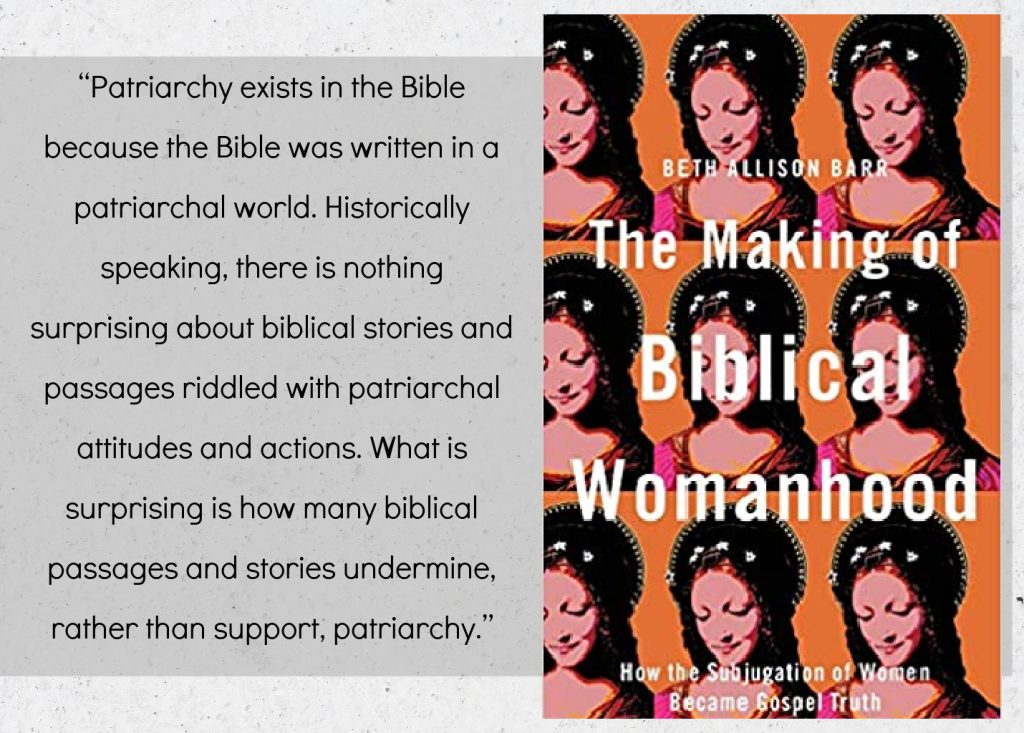
Forgotten God: Reversing Our Tragic Neglect of the Holy Spirit, by Francis Chan: Earlier this year I read a book about the Holy Spirit. It was the first full book I’d read dedicated to this “forgotten” member of the trinity and I was left desiring to read more. This book from Francis Chan (which has been lingering on my Kindle for years) was an obvious next pick.
Chan highlights the huge gap between what Scripture says about the Holy Spirit and how most believers and churches operate today. He writes that “the light of the American church is flickering and nearly extinguished” and that the Holy Spirit is vital to our situation: the thriving of our churches and our souls is dependent on the work and presence of the Spirit, who holds the power to produce genuine fruit and radical transformation.
Chan lays out a fundamental knowledge of the Holy Spirit, examining our abuses, misconceptions, and fears of Him. Through stories and Scripture, He reminds us of the strength and wisdom that come when we pray for more of the Spirit. This is a short book and therefore not a comprehensive look at the Holy Spirit. What the book does do well is provide an overview of the theology of the Holy Spirit and effectively ignite a longing for the Spirit and a desire to embrace His power. This message is both intriguing and convicting, leaving me with a lot to chew on regarding on why I long for the Holy Spirit and whether or not I am truly willing and open to His activity in my life. Chan’s thoughts on the role that the Holy Spirit plays in illuminating God’s will for our lives is especially insightful.
I admire Chan’s candid discussion of what he knows and is still learning about this topic, and am inspired by his passion to pursue God—including the Forgotten God. I LOVED the mini biographies sprinkled throughout the book that showcase believers who lived out the power of the Holy Spirit in some incredible ways. This is a quick read with big impact.
My Rating: 4 Stars // Book Format: eBook
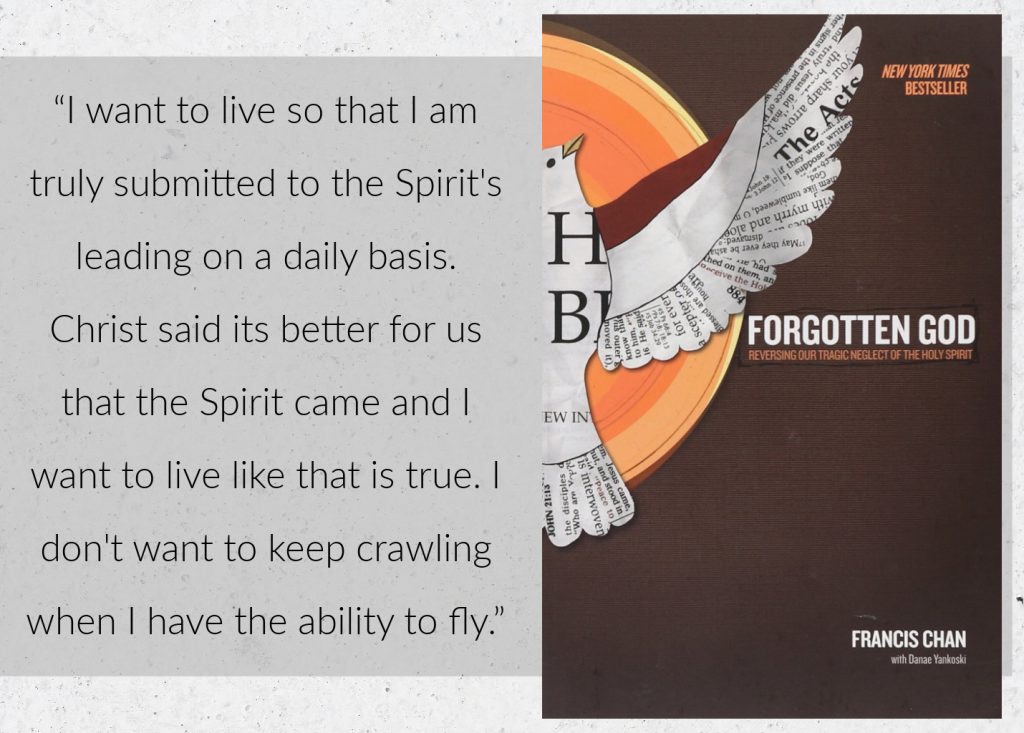
The Truth About Us: The Very Good News About How Very Bad We Are, by Brant Hanson: Despite what culture often tells me, despite what I frequently tell myself, I am not a good person. In fact, neither are you. If Scripture is true (and I believe that it is), we all are sinners who are deeply broken and in need of redemption. The good news, though, is that this actually is good news, and in this humorous yet truth-packed book, radio host and Christian speaker Brant Hanson helps us understand why.
With self-deprecating humor and a fun take on well-known but frequently misunderstood Biblical passages, Hanson helps us come to terms with our own fallen nature. He draws attention to the flaws in our assessment of ourselves, our misguided judgments regarding our morality and that of others, and the ways that society fuels these lies through proclamations about self love and and letting your heart be your guide. He shows how we must overcome our delusions about our goodness in order to embrace Jesus’ grace and shows that repentance can free us from striving in order to truly live out our identity in Christ.
I adored this book. Not only is it insanely funny, but it exposed a lot of lies I was inadvertently believing (fitting well with my current Truth Chronicles journey; in fact many of the book’s ideas are figuring into those posts). Most importantly, he not only exposed areas of self-righteousness within me but offers productive ways to counter it: through awareness, service, challenging my thinking, being clear-eyed about my heart and motivations, admitting my limited understanding, leaning into community and—most important—repentance. This is such a challenging subject, but Hansen’s wit and his constant drawing us towards the cross keeps this book from becoming a shame pile-on. The Christian church would be a much healthier and more whole place if everyone read this book and took it to heart.
My Rating: 5 Stars // Book Format: Audiobook
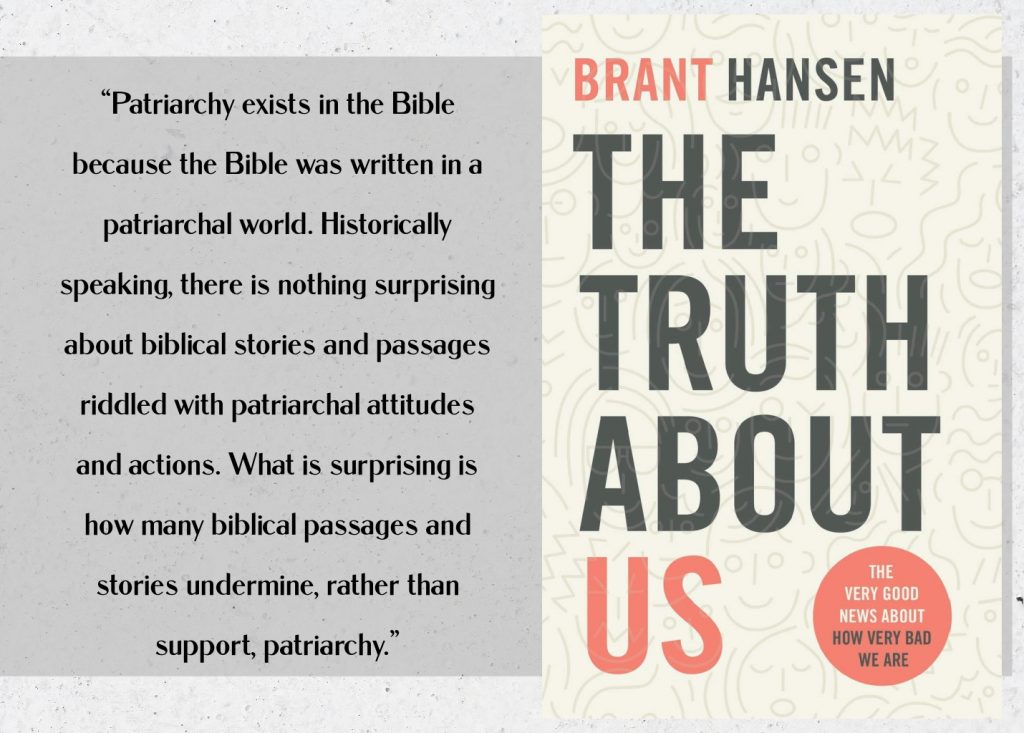
Don’t Mom Alone: Growing the Relationships You Need to Be the Mom You Want to Be, by Heather MacFadyen: Motherhood is HARD, and today’s moms face the added challenge that we are trying to do it on our own. Heather MacFadyen has created a ministry around helping moms support each other in becoming the moms our children need and that God created us to be; this book furthers that message. Through her own stories as a mom to four boys, along with wisdom gleaned through hundreds of podcast interviews with parenting and faith experts, Heather leads moms in becoming empowered by God, supported by others, and connected to our children.
I love the book’s three-pronged approach that begins with our spiritual formation, leads into community, and then informs our parenting. Within each section, Heather counters a false idea that is causing us to live in isolation and replaces the idea with a truth that will bring about connection. There is encouragement in every section, but for me the most beneficial and eye-opening chapter was the very first one in which Heather counters the lie that “I am responsible for my child’s outcome” and replaces that with “I am important but not essential in God’s plan for my child.” I hadn’t even realized how much I had bought into this lie, and the grace Heather offers here was so refreshing—especially because she doesn’t overcorrect with a message that moms have NO impact on our kids’ outcome, because that is both unhelpful and untrue (despite what some feel-good self-help gurus may tell us).
I adore Heather and her message and am thankful she has given us her wisdom and her own story in the form of this book. With its relevant themes and end-of-chapter discussion questions, this would be a fantastic book to read alongside a group of other moms, or maybe as part of a Mops group!
My Rating: 4 Stars // Book Format: Audiobook
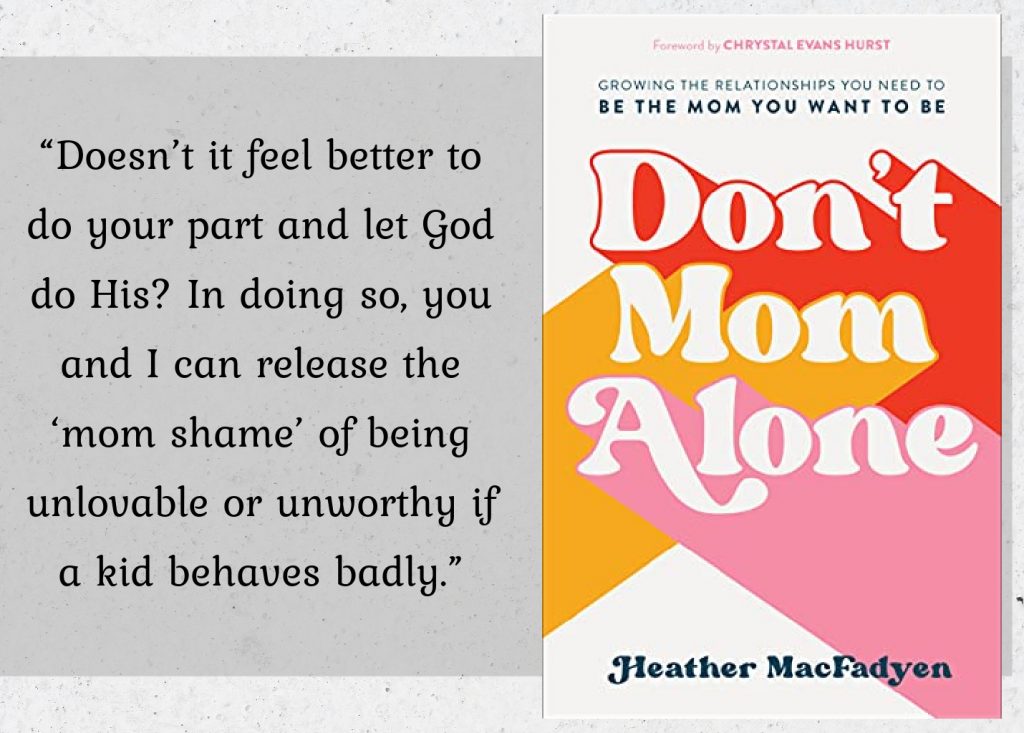
Woke Racism: How a New Religions Has Betrayed Black America, by John McWhorter: Racial tension has escalated in recent years, and issues of race are dominating political and cultural discourse. While most Americans genuinely care about this issue, solutions seem difficult to come by—especially when so many aspects of this conversation are deemed unspeakable, with anyone who might question the popular narratives being deemed racist which, these days, is about the most derogatory label a person can receive. As antiracist rhetoric has heightened, some well-meaning Americans from both the left AND the right are starting to wonder if the conversation has gone too far and whether antiracism may be doing more harm than good for Black individuals and communities.
Linguist John McWhorter, a self-proclaimed “woke” Black man, addresses this issue head-on in his recently released book, Woke Racism. In it, McWhorter reveals the illogic of the antiracist movement, which he equates to a cult-like religion in which members embrace their accepted paradigm with evangelical fervor. Within this religion of the “elite,” white privilege is an unpardonable sin, and being Black subjects people to perennial victimhood (while also bestowing virtue and privileges unattainable to non-Black individuals). McWhorter exposes the hypocrisies and fallacies within the Elite’s ideology and makes a case for the ways antiracism infantilizes Black people and is far MORE racist than less progressive approaches to race. McWhorter also offers a three-pronged approach to combatting racism in ways that are actionable and helpful and go beyond preaching at white people to wallow in guilt while perpetually “doing the work” of learning about (but never solving the problem of) racism.
Listening to McWhorter read this book to me (he has a fantastic narrator’s voice!) was a huge exhale. I was relieved to hear a person of authority on these issues speaking up against nonsensical ideas that have dominated most racial discussions over the past couple of years. McWhorter does not deny the existence of racism, but he does not give in to the black-and-white thinking (pun intended) on these issues. His work will likely offended individuals on both the left and the right, but I appreciate his willingness to push back against what we are being told and that many of us have started to question.
There are parts of the book that were difficult for me: in equating antiracism to religion, McWhorter paints Christianity in a deeply negative light, and while I could appreciate the parallels, I cringed at some of his misguided thinking regarding Christian belief (McWhorter himself is an atheist). McWhorter is also my political opposite, so I don’t know that I’m fully on board with all of his proposed solutions‚ but I can see their merit and appreciate the fact that he HAS ideas for solving the problems most antiracists would rather complain about than fix.
In some ways, this book broke my heart because it highlighted the ways that current trends are destructive to the Black community. It sickens me that political rhetoric and policies are disproportionately harming the very people they should be helping, while also burdening white allies with unnecessary shame. The antiracism movement is a massive stumbling block for the social justice it allegedly seeks. I’m so glad that McWhorter has refused to remain silent on this topic and can only hope more individuals will follow his lead.
Woke Racism is honest, heartfelt, and surprisingly funny (I loved McWhorter’s sarcastic tone)—a steady, common sense response to the impassioned rage that pervades so many race discussions. If you’ve read a number of books related to this issue (as I have) and were left confused or frustrated (as I was), this book should be your next read.
My Rating: 4 Stars // Book Format: Audiobook
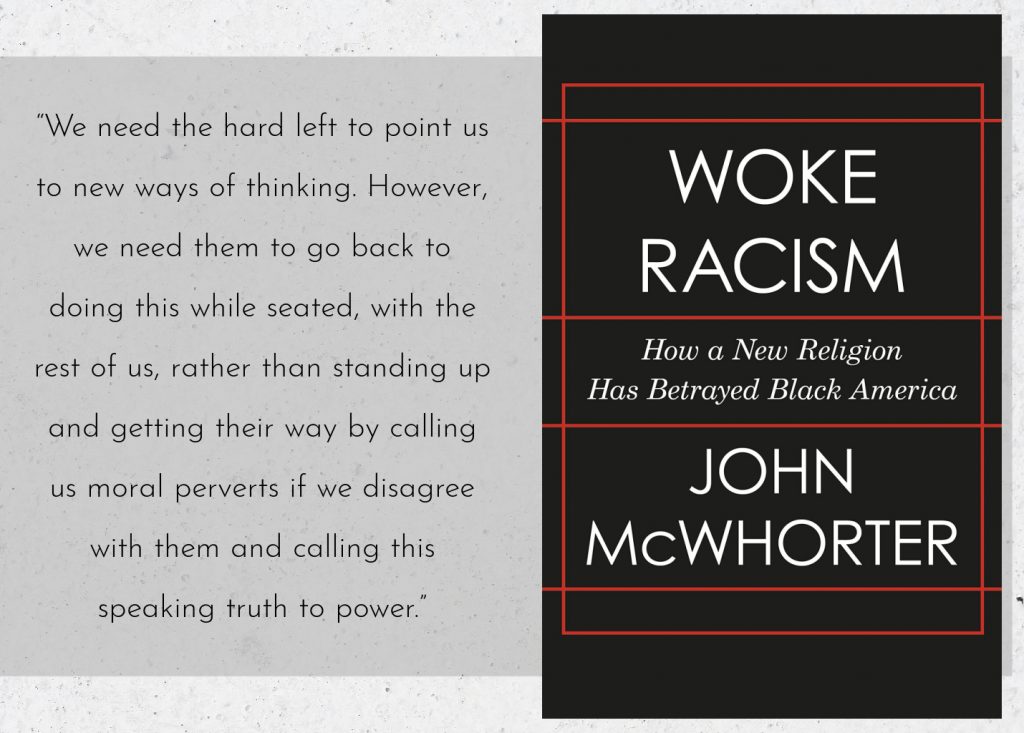
You’re Not Enough (And That’s Okay), by Allie Beth Stuckey: We are a nation of narcissists, and our self-obsession is fueled by everyone from social media influencers to self-help gurus, fashion marketers, and even well-meaning Christian teachers whose mixed messages have us believing that we are both worthy of love AND that we need to work harder/look better/chase our dreams. These messages aren’t just confusing, they are also completely antithetical to God’s truths as outlined in Scripture. In this book by a podcaster I deeply admire, we are offered an alternative message—that we are NOT good enough/smart enough/pretty enough/deserving of (fill in the blank). . . but we don’t have to be all of those things, because God is! This countercultural and even counterintuitive message stands in stark contrast to the toxic messages of culture, freeing us to let go of striving while paving the way for God’s grace and provision to fill in our gaps.
The book is divided into five sections, each outlining the deceptions behind a culturally accepted myth: You Are Enough, You Determine Your Truth, You’re Perfect the Way You Are, You’re Entitled to Your Dreams, and You Can’t Love Others Until You Love Yourself. I will freely admit that at points in my life I have bought into aspects of every one of these lies, and many are still myths I wrestle with today. I appreciated Allie Beth’s truth-speaking as she showed how these beliefs are harmful for those of us who are believing them and for those around us. I love how her book uses Scripture to combat entitlement, selfishness, subjective truth, and passivity—all components of (or byproducts of) narcism that are wrecking havoc on my generation of women.
The ideas presented in this book might seem harsh, simply because they are so countercultural, but Allie Beth brings grace into every page. She is a kind and relatable guide in helping readers come to terms with what God says about us and how we might live that out, and I admire her wisdom (especially for someone so young). I believe the intended audience is younger millennial, but even as someone with nearly a decade on Allie Beth, I took away so many great lessons from this book that is genuinely helping reshape some of my own closely held (inaccurate) narratives.
My Rating: 4 Stars // Book Format: eBook
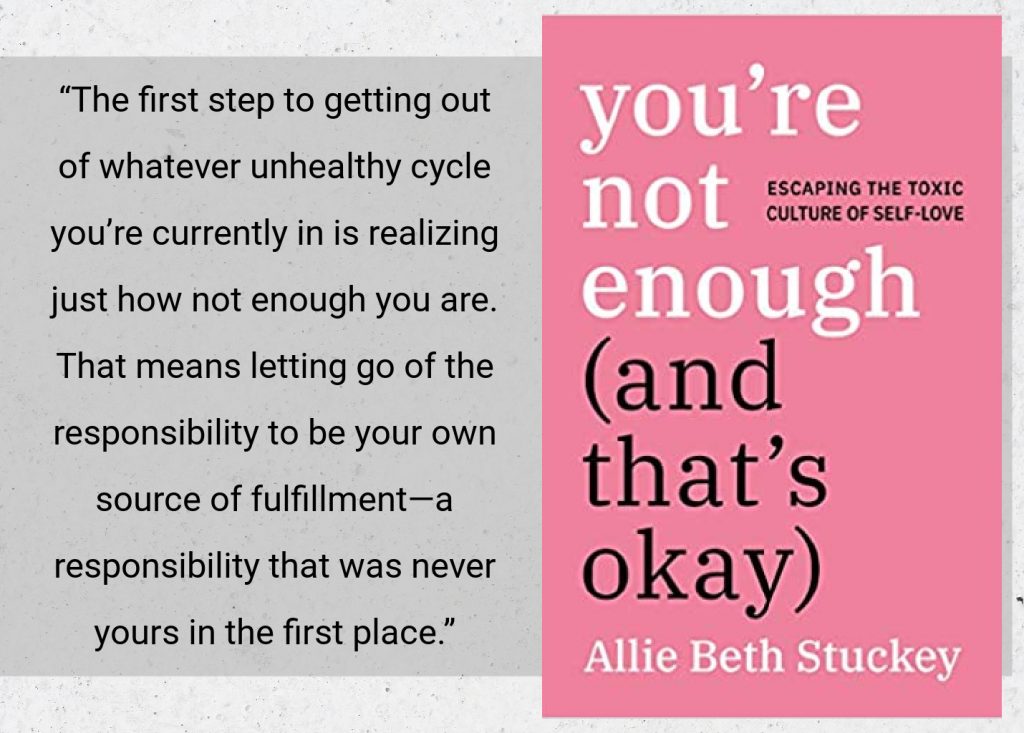
DEVOTIONALS
My Restoration Year, by John Eldredge: I read through two daily devotionals this year. The first was this one from John Eldridge. This is a gentle, nurturing book designed to draw the reader’s heart and soul closer to Jesus through beauty, reflection, and an invitation into deeper, wholehearted intimacy with the Lord. Each day includes a verse, a devotion, and a prayer around themes of God’s character, His will, and our connection with creation. I’m unsure on some of Eldredge’s Biblical interpretations, and this book is definitely more soul-driven than academic, but the reading experience is contemplative and inspiring, and the peaceful tone and continuous reminders of God’s love, goodness, and kindness provided a restorative moment to my mornings this year.
My Rating: 4 Stars // Book Format: eBook
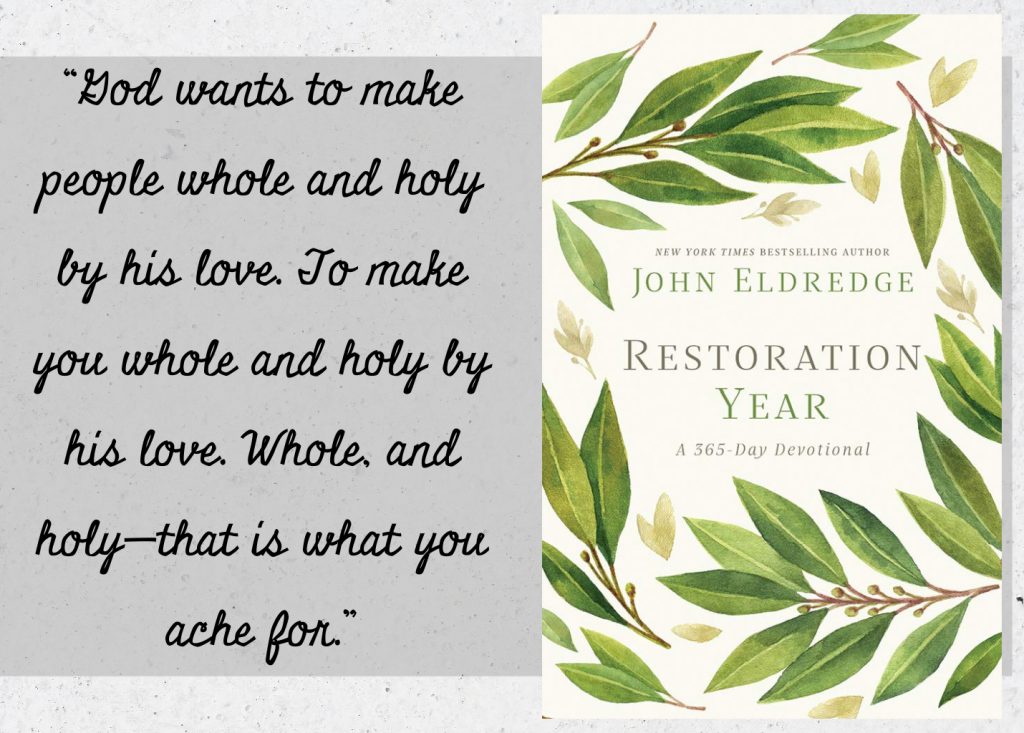
My Utmost for His Highest, by Oswald Chambers: My second devotional was this book, which I picked up as a reread mid-January based on the recommendation of a blog reader. I was a college student the last time I read this, and it held so much more meaning for me this time through. There is a good reason this book is a classic! Chambers’ words are convicting and inspiring, pushing the committed believer into a more active and informed faith as he does away with myths and mistruths about God and faith that are as prevalent today as they were when this book was published almost one hundred years ago. Nearly every day’s devotion seemed to be exactly what I needed to read that day, and I loved that I was sitting under the teaching of a faith leader from the past rather than a contemporary author; the fast pace and slippery cultural and spiritual landscape of recent years has me craving wisdom from the past, and this devotion absolutely delivered.
My Rating: 5 Stars // Book Format: Paperback
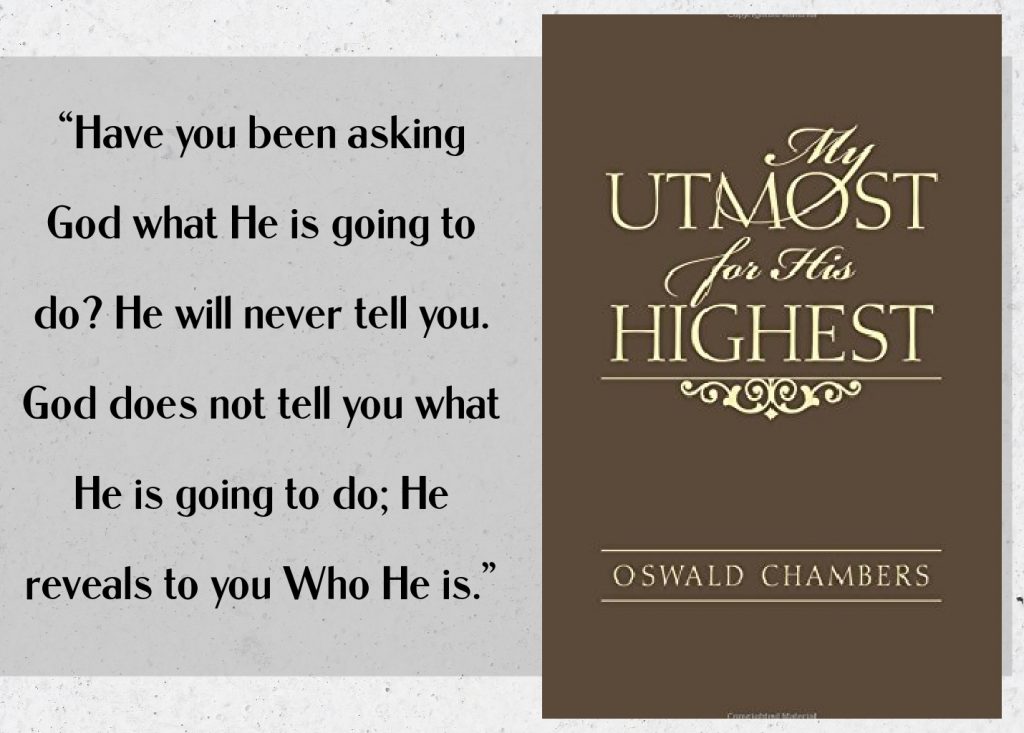
There’s a lot of discussion potential within these books. If you’ve read any of them, I’d sure love to hear your thoughts!